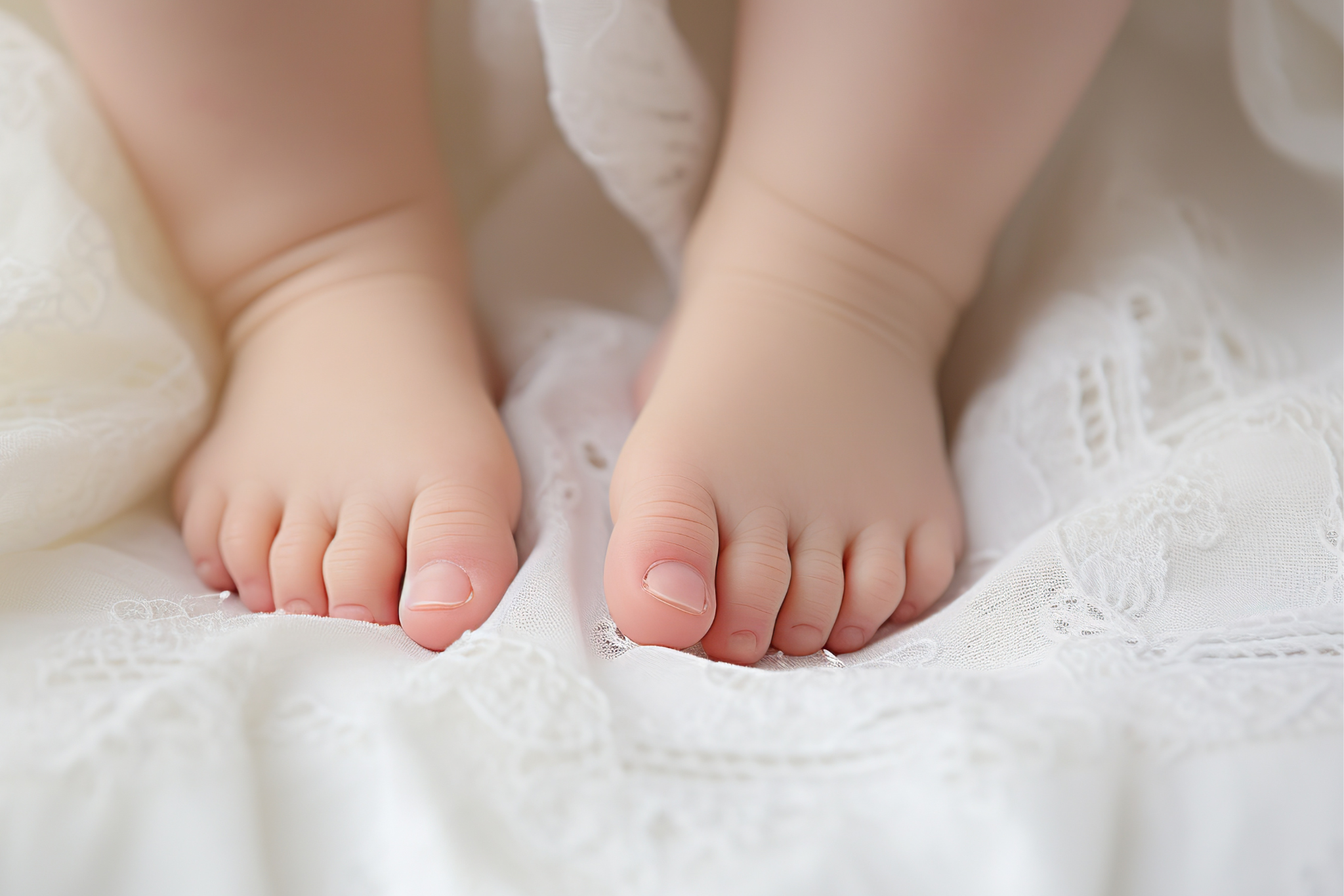Clubfoot in Newborns: Causes, Detection, and Effective Treatments
Finding out your newborn has clubfoot can feel overwhelming, but rest assured, early intervention can provide excellent outcomes. At Southern California Foot & Ankle Specialists (SCFAS), we guide parents through diagnosis, treatment, and support every step of the way.
What is Clubfoot?
Clubfoot, medically called congenital talipes equinovarus (CTEV), is a congenital foot deformity where one or both feet twist inward. If left untreated, children may struggle to walk normally. Understanding the condition and available treatments helps parents take action confidently.
Types of Clubfoot
- Idiopathic Clubfoot: Most common in healthy infants, with no underlying medical conditions.
- Syndromic Clubfoot: Associated with genetic syndromes or other congenital disorders.
- Positional Clubfoot: Caused by restricted space in the womb; often improves with gentle stretching or minor intervention.
Parent Tip: Knowing the type of clubfoot helps determine the best treatment plan.
Causes and Risk Factors
Clubfoot can develop due to a combination of genetic and environmental factors:
- Genetics: A family history of clubfoot increases the likelihood of occurrence.
- Environmental Factors: Maternal smoking or low amniotic fluid levels during pregnancy may contribute.
- Incidence: Clubfoot affects approximately 1 in 750 newborns, more often boys than girls. About half of the cases involve both feet.
Understanding risk factors helps parents prepare for early treatment.
Prenatal and Postnatal Diagnosis
Prenatal Detection
Ultrasound around the 20th week of pregnancy can detect clubfoot, giving parents the opportunity to consult our specialists and plan treatment in advance. Early detection improves outcomes and reduces parental stress.
Postnatal Diagnosis
At birth, doctors can diagnose clubfoot with a physical examination. Signs include:
- Foot turned inward or downward
- Stiffness and limited mobility
- Shortened Achilles tendon
Early evaluation by our pediatric foot specialist is essential for timely treatment.
Treatment Options for Clubfoot
Non-Surgical Treatment: The Ponseti Method
The Ponseti Method is the most effective treatment for clubfoot in newborns. This method is non-invasive, safe, and highly successful.
Treatment Steps:
- Weekly Gentle Manipulation and Casting: Gradual stretching and casting over 6–8 weeks to correct foot alignment.
- Achilles Tenotomy: A minor procedure to lengthen the Achilles tendon, followed by a three-week cast.
- Bracing: To prevent relapse, braces are worn full-time for three months, then during sleep until ages 4–5.
Encouraging Note: Parent participation is vital. Following the bracing schedule ensures long-term success and prevents recurrence.
Surgical Treatment
Surgery is rare but may be needed if non-surgical methods are insufficient. Surgical procedures focus on releasing tight tendons and correcting severe deformities. With proper post-operative care, children can achieve excellent foot function.
Long-Term Outlook and Support
Children treated for clubfoot with the Ponseti Method typically walk, run, and play without limitations.
Support Resources for Parents:
- Local and national support groups provide advice, emotional support, and guidance.
- Pediatric orthopedic communities offer educational resources to navigate treatment decisions.
Takeaway: Early treatment combined with consistent care ensures your child can enjoy an active, healthy lifestyle.
FAQ About Clubfoot in Newborns
Can clubfoot be corrected completely?
Yes! Most children achieve normal foot function with the Ponseti Method or, in rare cases, surgery.
When should treatment begin?
Treatment ideally starts within the first few weeks of life for optimal results.
How long is bracing required?
Bracing continues until ages 4–5, helping prevent recurrence and ensuring long-term correction.
Where can I find support?
Many organizations, online forums, and local pediatric orthopedic groups provide guidance and community support.
Take Action Today
If you suspect your newborn has clubfoot, early evaluation is critical. At Southern California Foot & Ankle Specialists, our team offers expert care using the Ponseti Method and other specialized treatments to ensure the best possible outcomes.
Call us at (949) 364-9255 or schedule an appointment online. With early intervention and your active involvement, your child can take their first steps toward a healthy, confident future.

